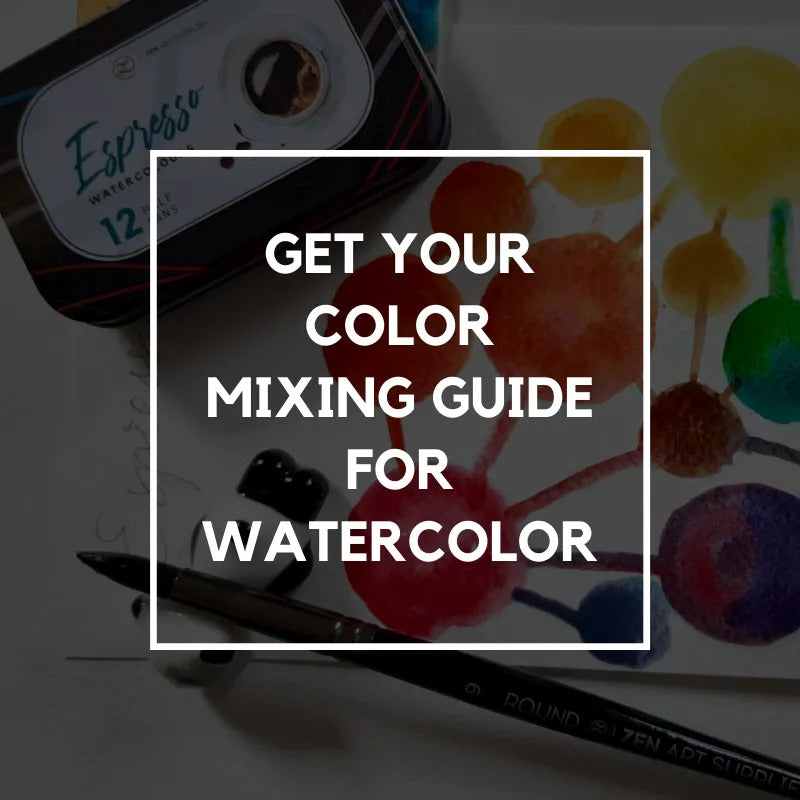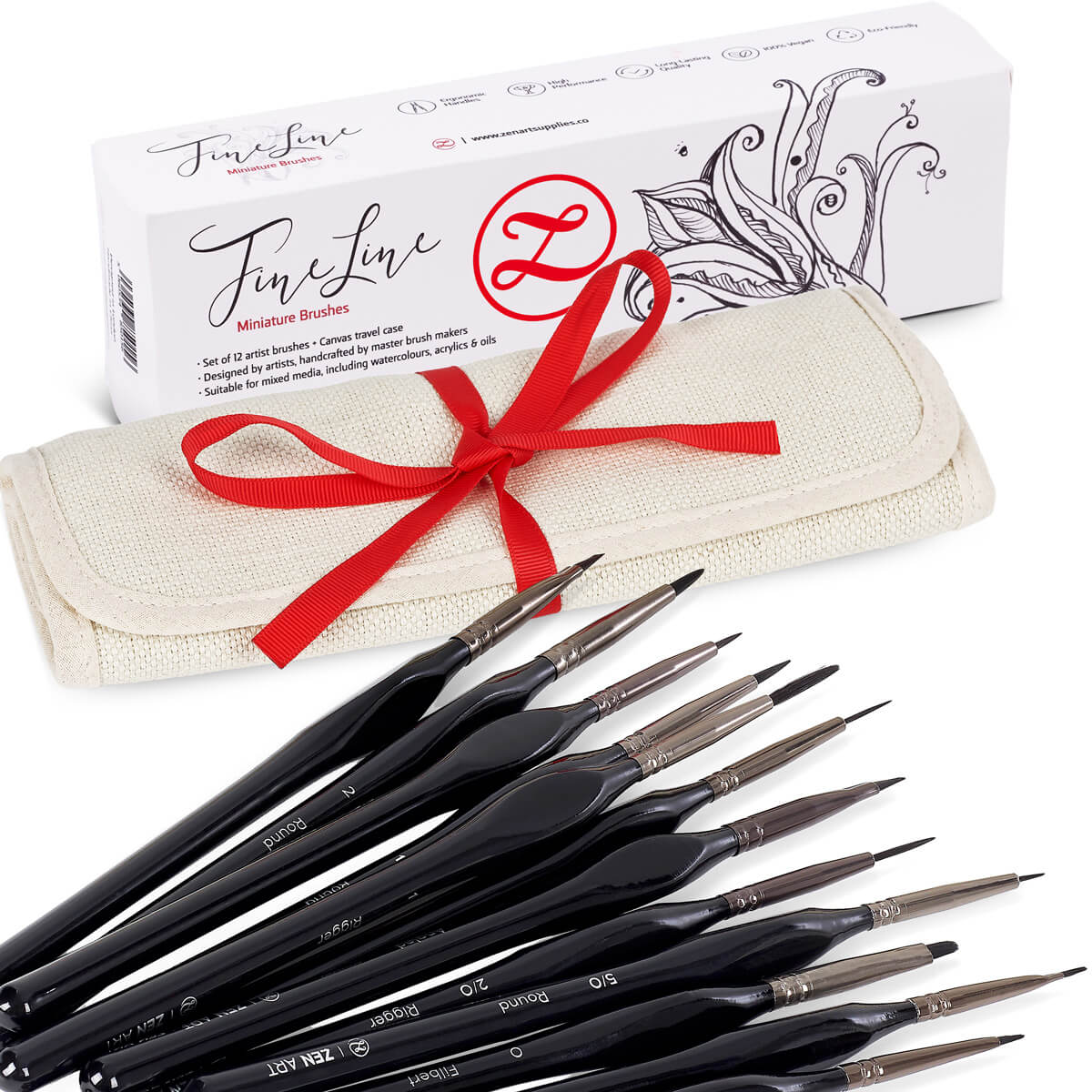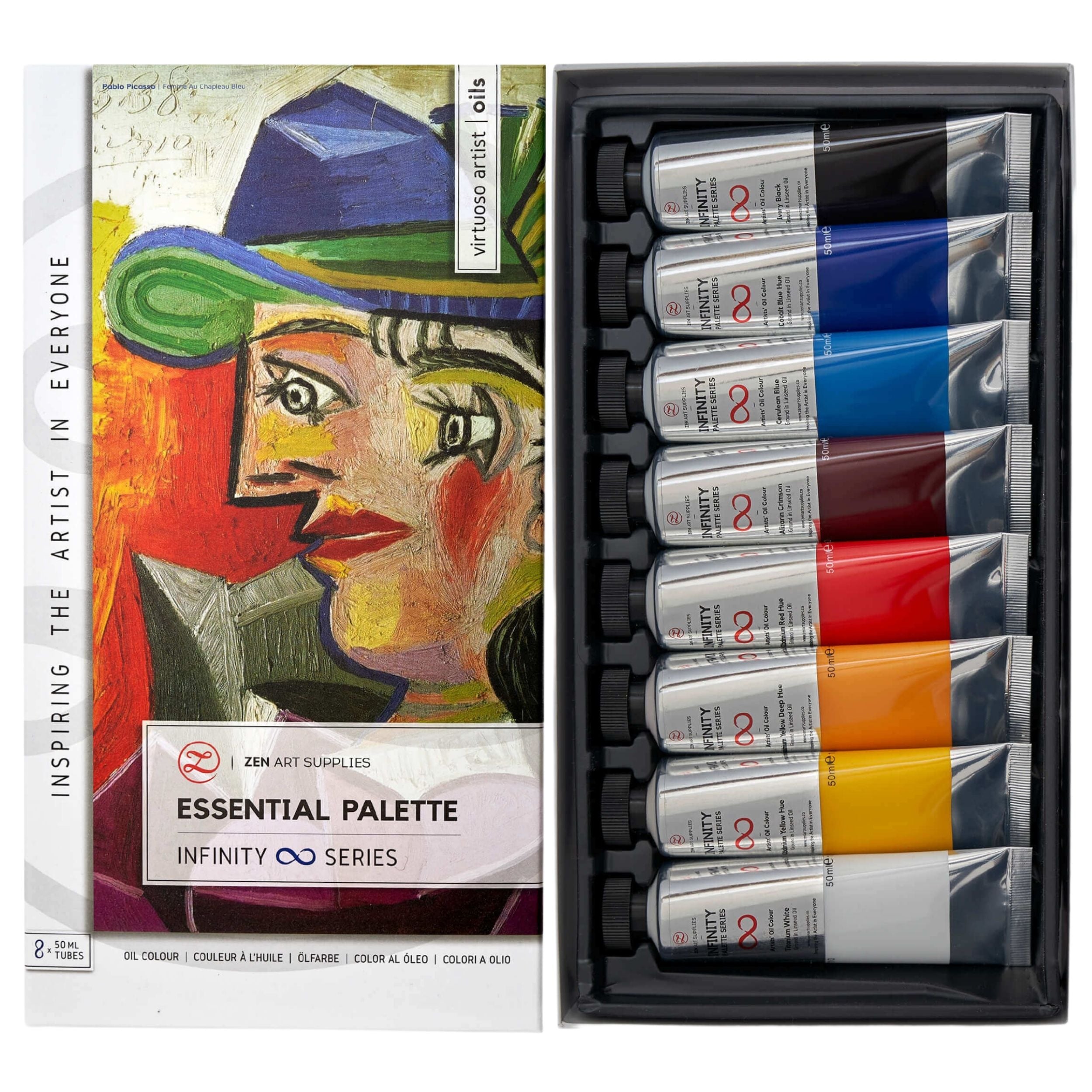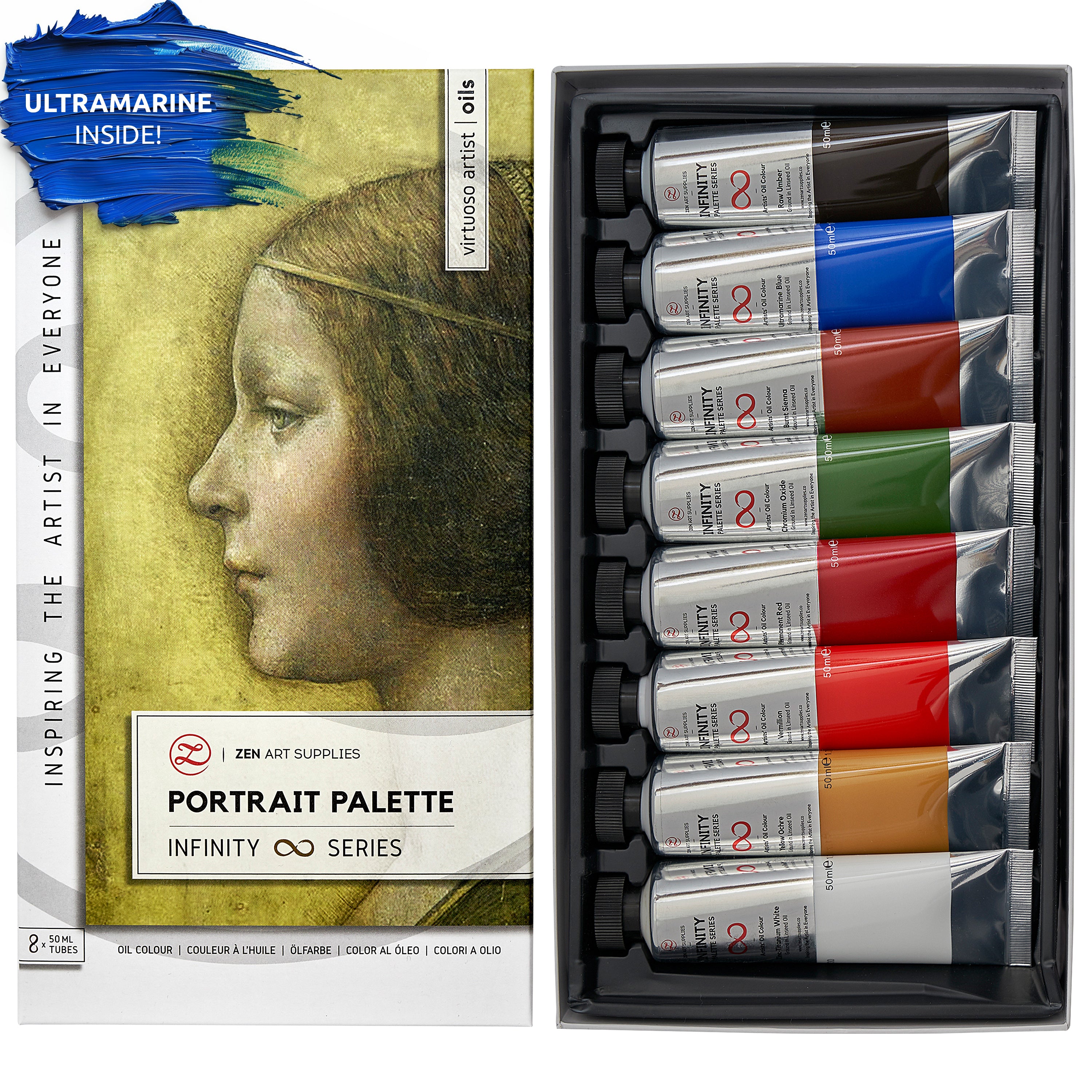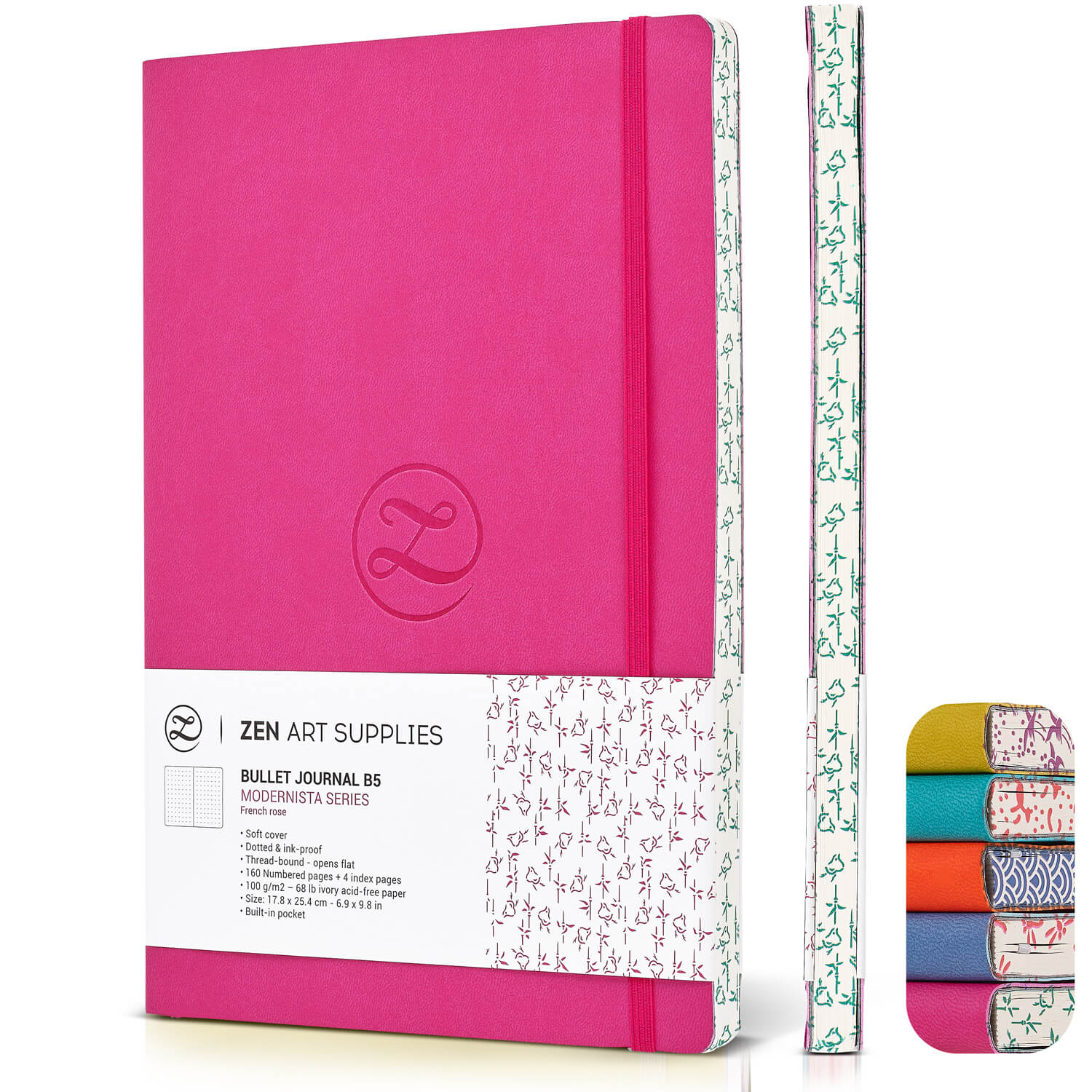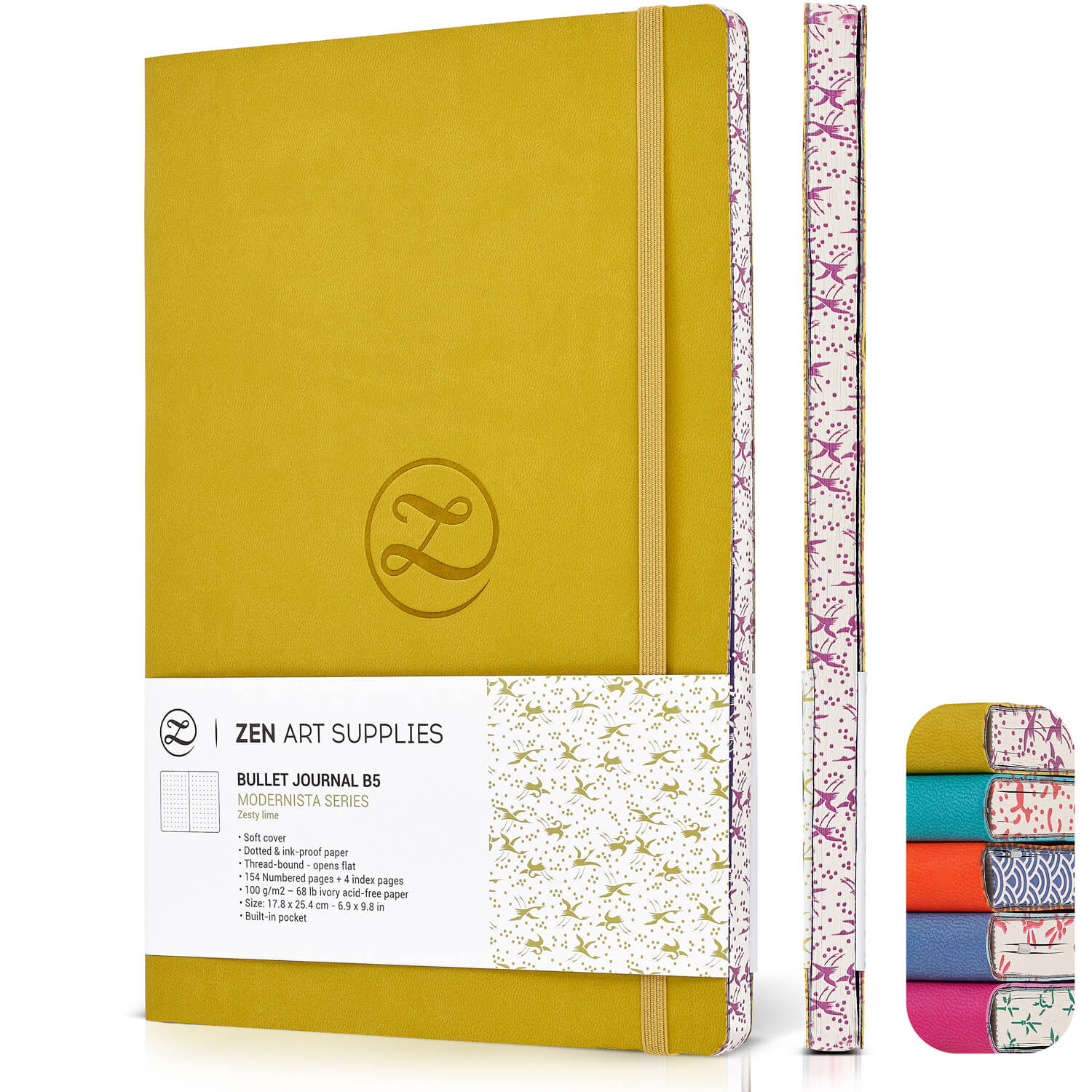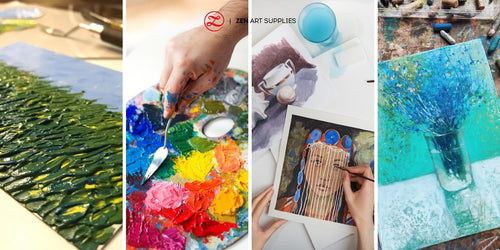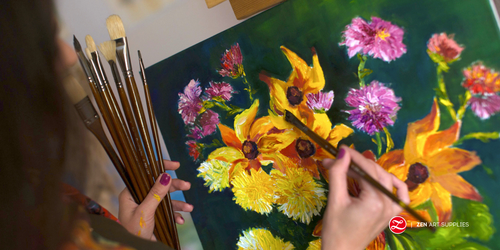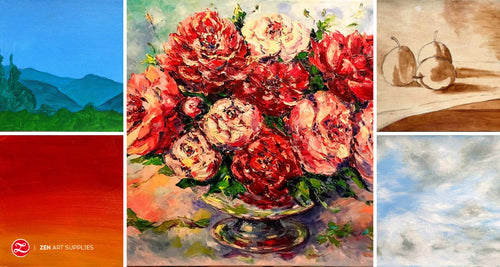Nobody likes dealing with hardened paint brushes after finishing an art project. While it's a total no-no to leave your paint brushes in paint for long, it's also a pretty common mishap. We're big advocates for cleaning and caring for your paint brushes properly just to prevent this problem. But it's not always avoidable.
Don't toss that dried paint brush in the trash just yet. You may be able to salvage it and even restore it to look like a still-new brush.
For this guide, we'll be focusing on cleaning brushes used with common art mediums like acrylic, oil, watercolor, and gouache paint.
Here are a few methods to clean dried paint brushes depending on the medium you use and the type of bristles on your brush.
See what works for you. And thank us later.

Renoir Collection, beautiful set of brushes with long, balanced handles. Has both hog and badger hair to choose from, a palette knife, and comes with its own travel case.
Caring for and cleaning brushes after painting
As they say, prevention is better than a cure. Don't let the paint dry out too long on your paint brush. Wash or clean them immediately after you're done painting.
The process to clean brushes may differ depending on your medium of choice, though. Here are some guides to check out:
Cleaning natural hair paint brushes
The methods we mention here will apply to any synthetic brush. But if you're using natural bristle brushes for watercolor, you should treat them with extra care.
If you're working with watercolor paints, no need to mix or get a brush cleaner. For a deep clean, here's what to do.
- Rinse the brush with soap and cold water, removing paint with your hands or fingers if necessary.
- Wash them until the water runs clear. Make sure you don't get the ferrule too wet or it can loosen the glue that keeps your paintbrush together.
- Remove excess water by gently wiping your brush on a rag or paper towel.
- Reshape and dry your brushes on a flat surface to protect the ferrule.

There are brush cleaning soaps that you can buy like the one above.
Cleaning acrylic and water-based paints off brushes
You're most likely here because you're dealing with acrylic paint that's totally caked over your paint brushes. Because it's polymer-based, acrylic paint becomes hard and mostly permanent when dry.
If you're stepping away from your project for a while, clean your paint brushes first. Then put your wet acrylic paint or palette in a plastic bag so it doesn't dry out.
Now if you're one of the many artists that have left dried paint on your brushes, here's what you can do.
Fabric softener method

This works only on water-based paints like acrylic or latex.
For this method, you'll need:
- A bucket, bowl, or jar
- 4 cups of warm water
- 1/8 cup of fabric softener
- Paper towel or rags
As a rule of thumb, keep your fabric softener to water ratio at around 1:32. You can increase the volume depending on the size of your brushes.
This process is quite simple:
- Prepare your fabric softener solution.
- Remove as much paint from your brushes as you can.
- Dip and swirl your paint brushes in the mixture until the dry paint starts to come off and settle at the bottom of the bucket.
- Once you've got a clean brush, give it a rinse in the sink to remove the excess fabric softener solution.
- Thoroughly wipe your paint brushes dry on a towel. Make sure to reshape your brushes, too.
- Leave them to dry completely on a flat surface. Don't dry your brushes upright or this can loosen the brush head and damage your handle.
Vinegar method

Using vinegar is an effective method to clean hardened paint brushes using stuff you probably already have in your pantry. The only downside is that it's time-consuming and smelly. If you're not bothered by the smell, here's what you'll need:
- White vinegar or apple cider vinegar
- A small sauce pan or pot
- A jar or bowl
- Soap and water
As for how much to use, you only need enough vinegar to coat your brush bristles. You have to boil it too, so we recommend that you cover your pot. Otherwise your kitchen will smell vinegary.
For the white vinegar method
- Boil your vinegar over an open flame.
- Once boiled, pour the vinegar into a jar and let it cool slightly.
- Place your brushes in the hot vinegar and let it sit for 20 minutes.
- Use your fingers to comb through and remove all the paint from the brush.
- Rinse your brushes with warm soapy water. The remaining paint should wash away. If not, repeat the steps.
- Reshape your paint brushes and let them dry horizontally.
For the apple cider vinegar method
- Similar to steps 1 & 2 above, boil the apple cider vinegar then pour it into a jar.
- Place your brushes in the vinegar and let them sit overnight.
- The next day, thoroughly rinse each paint brush to remove excess paint.
- Reshape them and let them dry horizontally.
Alcohol method

Here's how to clean dried paint brushes with things you have at home: good ol' rubbing alcohol.
Dip your paint brush in some rubbing alcohol. Soak if necessary. The paint should dissolve after a while.
Using alcohol does dry out your brushes. So restore those bristles with some moisturizing soap after cleaning.
Solvent method

You can also head to the art or hardware store to pick up paint thinner, brush cleaner, or a solvent that works with the paint you use.
- Water for water-based paint
- Denatured alcohol for shellacs
- Mineral spirits for varnish and oil paint (more on this later)
Once you've chosen a solvent, it's pretty easy and straightforward to use. Get a pair of rubber gloves too, if your solvent is toxic.
- Remove as much paint from the bristles as you can with a rag.
- Soak your brushes in the solvent.
- Use a marked jar or tupperware to avoid using the same vessel for food. You can also use or cover it with a plastic bag if the brush cleaner is toxic or gives off fumes, to better dispose of it after cleaning.
- Swirl your brush in the solvent to dislodge the paint.
- Rinse with soap and water. Repeat if necessary.
Cleaning oil-based paints off brushes

Treat your oil painting brushes with care and they'll last you for ages. Some people are put off by oil paints, thinking they need a lot of harsh chemical solvents and oils that produce harmful fumes and smells. But this isn't always the case.
Here are some things you can use to clean paint brushes for oil painting:
- Solvents like turpentine, mineral spirits, or oil paint thinner. These are most common and effective. However, they're toxic, so you'll need to work in a well-ventilated area.
- Linseed oil or safflower oil, if you want to go solvent-free
Once you've picked what to use, this is how to clean oil paint off your brush bristles.
- Wipe the paint brush on a rag or paper towel to remove excess paint.
- Pour a little solvent into your container of choice.
- Work your brush into the cleaner. Use circular motions to get the cleaner into the bristles. You'll see the paint come right off.
- Keep repeating these steps until you get all of the paint off your brush.
- Again, wipe off the brush on a rag or towel to remove the remaining solvent or cleaner from the brush.
- Follow up with a quick wash in mild soap and warm water. Don't use hot water because this can dissolve the glue holding your brush together.
- Squeeze the water out of the brush gently. As always, reshape and leave it to dry on a flat surface.
Avoid cleaning dried paint brushes altogether by taking care of your paint brushes!

Our Renoir Collection, a 14-pc brush set of Chungking Hog and Badger hair brushes in various shapes and sizes.
We hope you've learned how to clean dried paint brushes better now. And we hope you've found the method that works best for you!
But sometimes there's truly no way to salvage or clean dried paint off a petrified brush. Sadly, you'll have to toss your well-loved brush into the bin. Now, one sure way to never make this mistake again is to know the right way to care for and clean paint brushes.
Before you start painting, know what paint brush to use and how to clean and store them properly. We've got guides for that. Check out our Toolkit section for more tips and tutorials to help you through your next paint project!
- MEET THE AUTHOR-

Belle O. Mapa is a writer and artist based in Manila, Philippines. She believes that everyone is born with an inner creative spirit—we just need to nurture and discover it on the blank page. Currently, she lives out her passion: writing stories, hosting journaling workshops, and advocating for mental health awareness.










